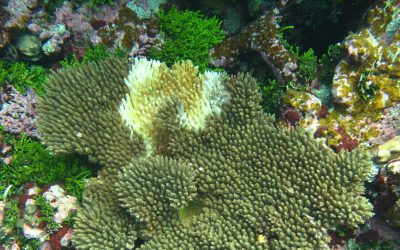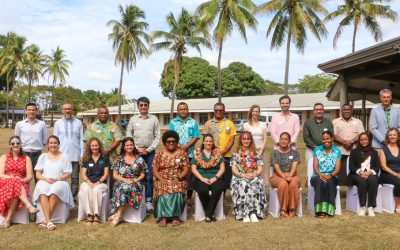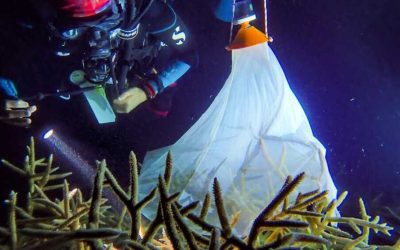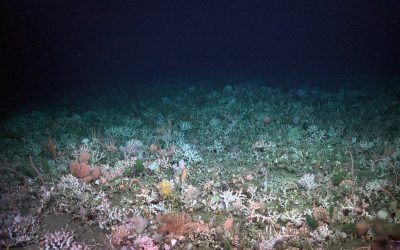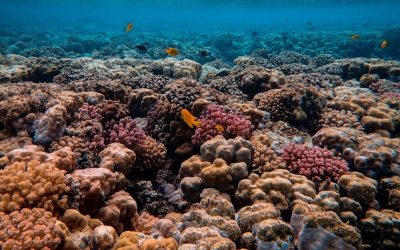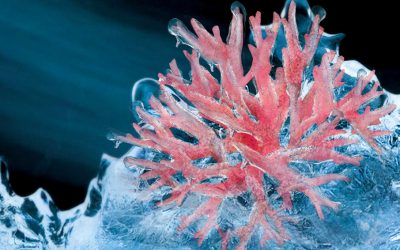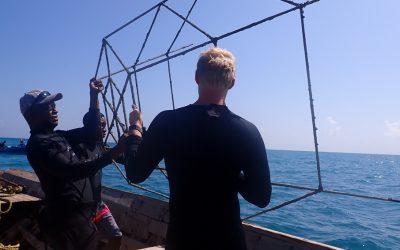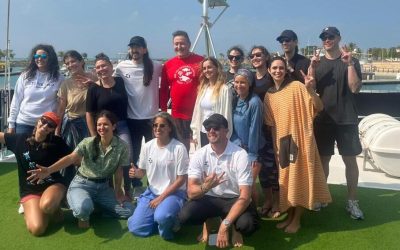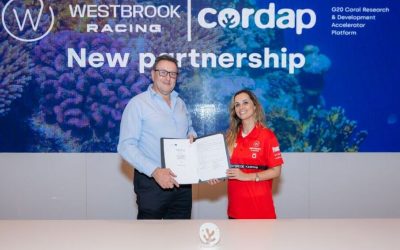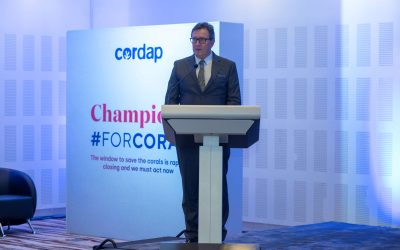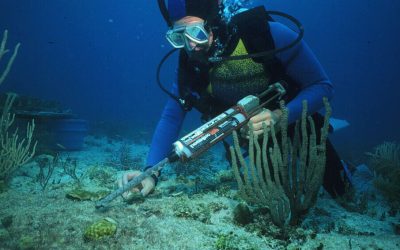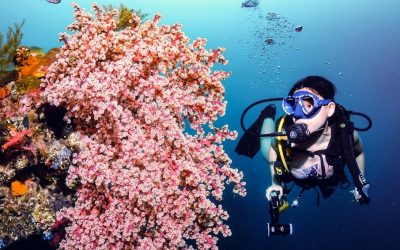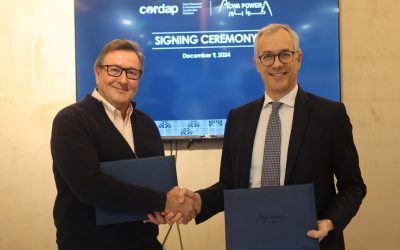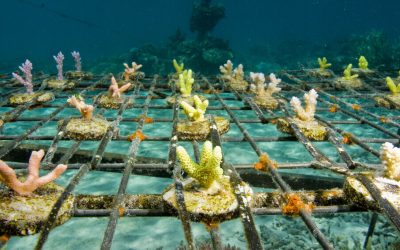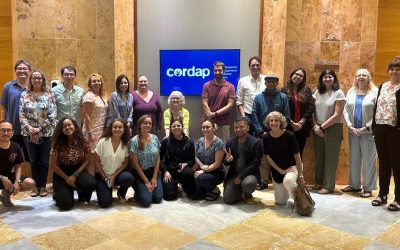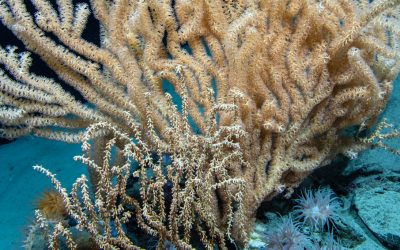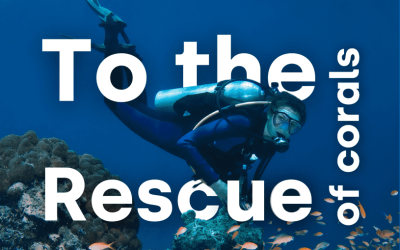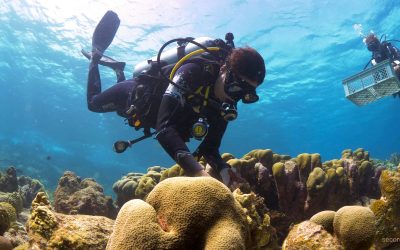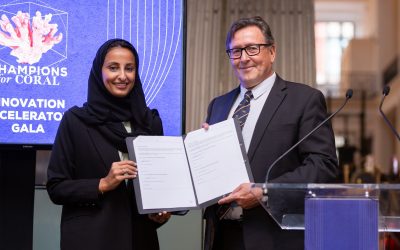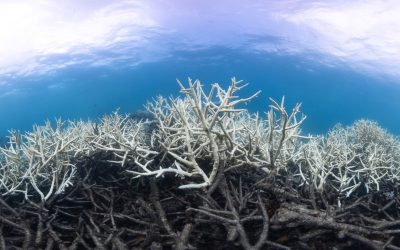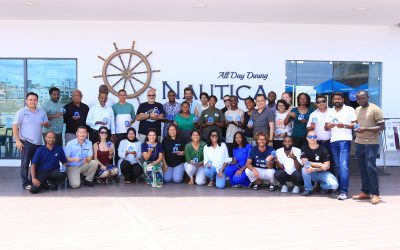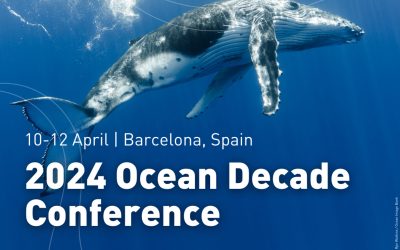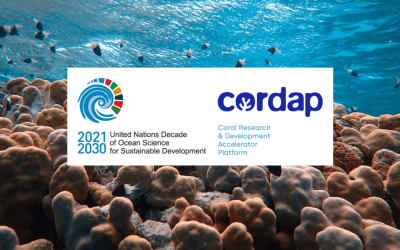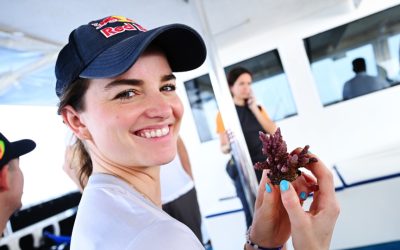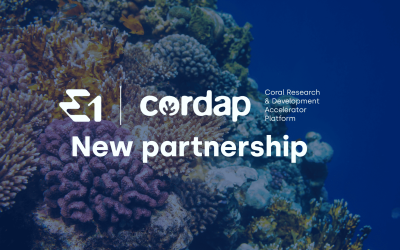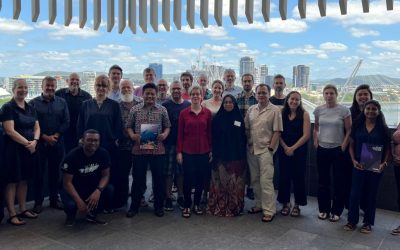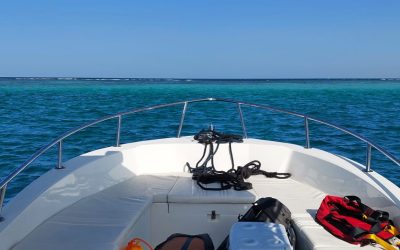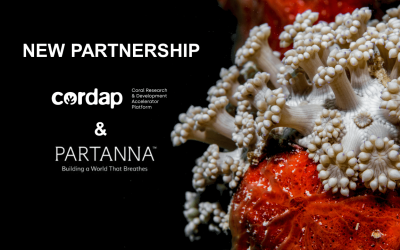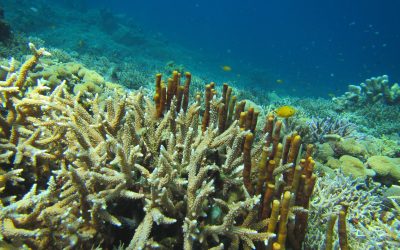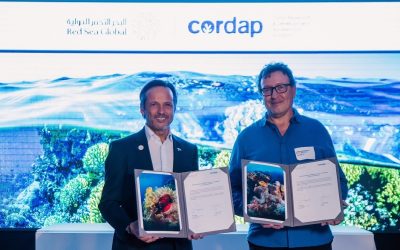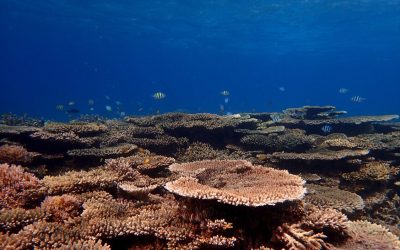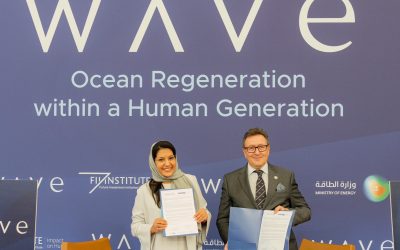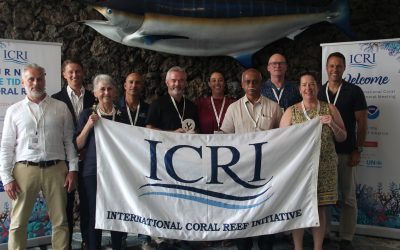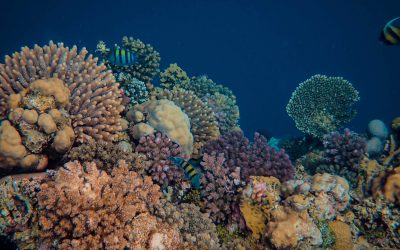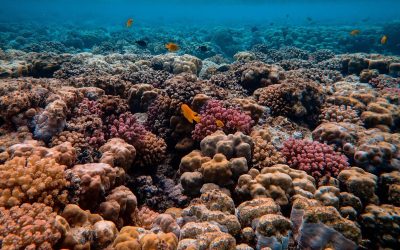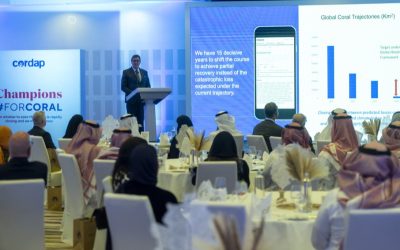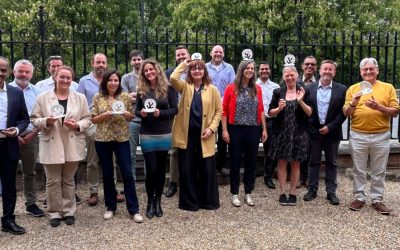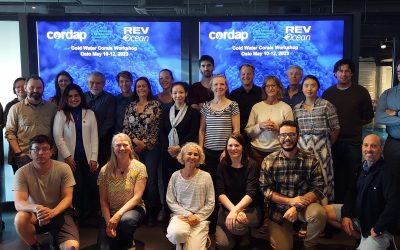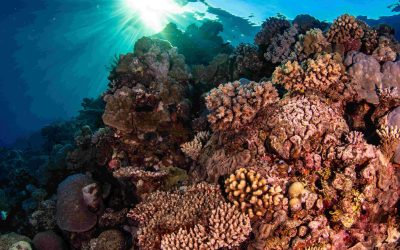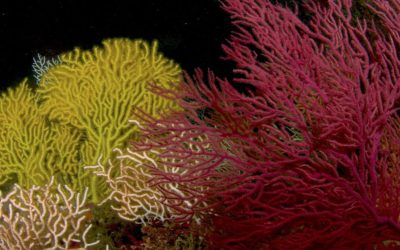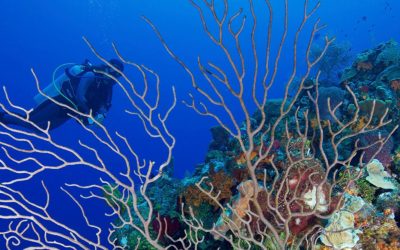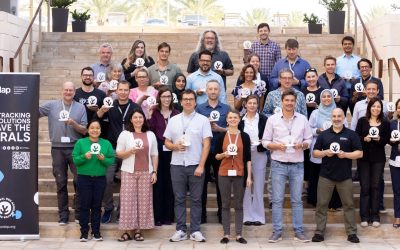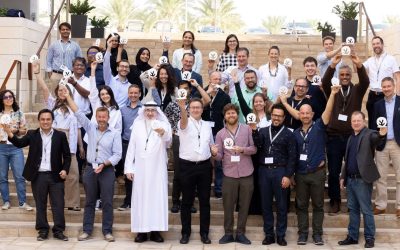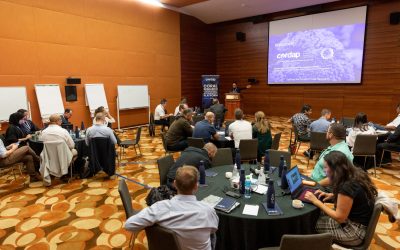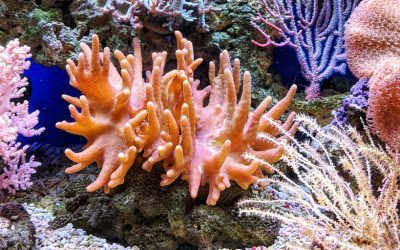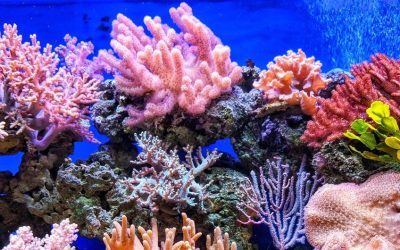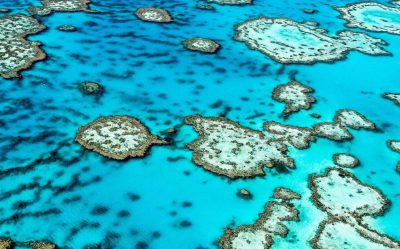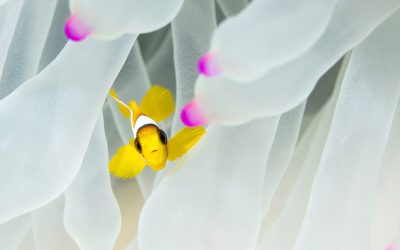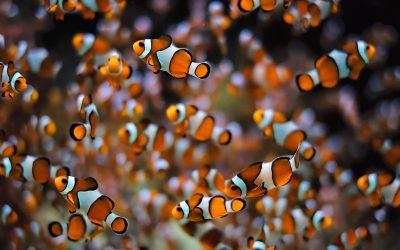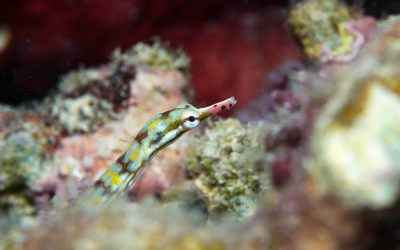CORDAP released a complete roadmap that reviews the current state of knowledge about coral diseases, identifies critical gaps, and suggests paths to move forward in the combat against these diseases.
CORDAP publishes roadmap on enhancing capacity development in coral reef conservation and restoration in the Global South
CORDAP released a detailed roadmap focused on building regional capacity and supporting community-driven innovation in the Global South.
CORDAP scoping study: how land-based pollution and water quality affect corals
Coral conservation experts gathered at a CORDAP workshop in Fiji to discuss the actions needed to address land-based pollution and water quality issues in a way that contributes to efficient coral restoration.
The unexpected solutions to save coral reefs worldwide
CORDAP awards $1.5 million to 16 breakthrough solutions to save coral reefs through restoration projects.
Global coral research funding reopens — up to USD 1.5 million per project
PRESS RELEASE - September 1, 2025 CORDAP announces new funding call and celebrates 2024 awardees The G20 Coral Research and Development Accelerator Platform (CORDAP) has launched its fourth annual Coral Accelerator Program (CAP) funding call, offering up to USD...
Urgent Call to Action adopted during the UN Ocean Conference
This call to action was issued by the International Scientific Committee of the One Ocean Science Congress, which is composed of 16 renowned scientists, including Carlos Duarte — CORDAP Executive Director and a prominent ocean voice and leader.
CORDAP is the recipient of the 2025 Mirpuri Foundation Ocean Award
CORDAP was selected as the recipient of the 2025 Mirpuri Foundation Ocean Award. The award, which includes a €10,000 prize, honours excellence in marine conservation, scientific innovation, and circular economy principles.
CORDAP and The Earthshot Prize launch global search for coral Innovators
New strategic partnership announced aboard OceanXplorer during UN Ocean Conference with ocean advocates James Blunt and Philippe Cousteau Jr.
DJ Steve Aoki ‘s racing team is joining scientists to save corals
CORDAP and Aoki Racing join forces to raise coral awareness around the world.
CORDAP at UNOC3: Advancing coral reef restoration at the UN Ocean Conference 2025
From June 9 to 13, 2025, Nice, France, will host the third United Nations Ocean Conference (UNOC3), co-organized by France and Costa Rica. This global conference aims to accelerate global action for ocean conservation and the sustainable use of marine resources, aligning with Sustainable Development Goal 14 (SDG 14).
CORDAP Annual Report 2024: Rewriting the future for corals
2024 was a year of extremes. Declared the warmest year on record—and the first to breach the +1.5°C threshold above pre-industrial levels—the urgency to protect and restore corals and reefs has never been greater. Yet, amid the challenges, CORDAP made significant progress in scaling up the science needed to save corals.
CORDAP will offer USD1.5 million in research grants
CORDAP announces the launch of a new funding program, the Coral Local Innovation Program (CLIP). With a total of USD1.5 million allocated to the call, CORDAP aims to support researchers working on finding local, affordable coral conservation and restoration solutions in developing countries.
CORDAP was present at the E1 Jeddah GP
In January 2025, CORDAP hosted a diving expedition to the Red Sea and set up an interactive booth to raise awareness on corals at the E1 Jeddah GP.
CORDAP and E1 are racing against time to save corals
CORDAP and E1 strengthen a partnership to advance coral restoration and awareness worldwide.
CORDAP and Westbrook Racing announce a game-changing partnership to save corals
The G20 Coral Research and Development Accelerator Platform (CORDAP) is proud to announce a partnership with the E1 racing team Westbrook Racing, owned by global icon Will Smith, to accelerate awareness and education about coral conservation worldwide.
CORDAP’s Executive Director, Prof. Carlos Duarte, wins the prestigious Japan Prize
CORDAP is proud to announce that our Executive Director, Professor Carlos Duarte, has been awarded the 2025 Japan Prize—one of the world’s most prestigious scientific honors—for his groundbreaking contributions to our understanding of marine ecosystems and pioneering research on blue carbon.
The Top 200 companies with power to boost coral conservation and restoration
After identifying 200 companies across the globe with the potential to accelerate coral restoration efforts, CORDAP has released a database designed to bridge a persistent gap in the field: the lack of interconnection between conservationists and the private sector.
CORDAP releases roadmap on the ecological risks of coral reef interventions
Any intervention done to help coral reefs may pose some unintended risks to the local environment. As part of responsible innovation, CORDAP has released a detailed roadmap aimed at supporting practitioners in evaluating those risks and determining whether the risks and benefits of intervening outweigh the threats posed by inaction.
CORDAP made waves at Reef Futures 2024
CORDAP was present at Reef Futures, a world gathering on coral research and restoration.
The US$ 3 million partnership to save corals
CORDAP and ACWA Power sign partnership at COP16 in Riyadh to advance coral restoration worldwide.
CORDAP releases aquaculture roadmap to speed and scale up coral restoration
CORDAP has released a technology roadmap providing key recommendations for future coral restoration strategies, based upon the development of cheaper, more scalable coral aquaculture practices. Restoring corals on a scale that will ensure survival of the world’s reefs...
CORDAP scoping study: filling knowledge gaps in coral disease research
Coral conservation experts gathered at a CORDAP workshop in Puerto Morelos, Mexico to discuss the gaps and needs in coral disease research, with the goal of drafting a roadmap to help advance this research field, develop guidelines to prevent disease spread, and...
CORDAP releases a roadmap for research and technology to help conserve cold-water corals
Conservation and restoration of cold-water corals: a roadmap for future research CORDAP has released a roadmap setting out the knowledge gaps and the key research priorities and technological developments needed, to ensure effective protection and restoration of the...
New web series “To the Rescue of Corals” unveils the future of coral conservation and restoration
PRESS RELEASE - September 6, 2024 Two-thirds of the world’s coral reefs have already been lost due to human activity and more than 60% of the remaining coral reefs could disappear in the next 10-15 years if no actions are taken. The world’s corals are facing...
CORDAP announces USD$8.5 million for new call and celebrates CAP 2023 Awards
PRESS RELEASE - September 2, 2024 Call for proposals now open for CORDAP’s Coral Accelerator Program 2024 The G20 Coral Research and Development Accelerator Platform (CORDAP) is pleased to announce the launch of its third funding call, the Coral Accelerator...
CORDAP and the Khaled bin Sultan Living Oceans Foundation partner to advance coral restoration education
The G20 CORDAP and the Khaled bin Sultan Living Oceans Foundation (KSLOF) are proud to announce the signing of a Memorandum of Understanding between the two entities to upscale coral restoration education. The formal agreement was signed by HRH Princess Hala bint...
Coral bleaching: what is it and what is CORDAP doing to confront it?
The planet is experiencing the fourth global coral bleaching event on record. We explore what coral bleaching is, why it presents a major problem for reef restoration efforts, and how CORDAP is helping to supporting research on potential solutions. NOAA and ICRI...
Scoping Studies: CORDAP to increase capacity for coral conservation in the Global South
Coral conservation experts gathered at a CORDAP-hosted workshop in Mombasa, Kenya to discuss barriers to coral conservation in developing countries, with the goal of drafting a roadmap to help overcome them. Over half of the world’s coral reefs are found within six...
Driving action for corals at the UN Ocean Decade Conference
As part of our mission to deliver the science we need, to support the coral ecosystems we want, CORDAP will participate in the Ocean Decade Conference in Barcelona, April 10-12 2024. As the UN Decade of Ocean Science for Sustainable Development (2021-2030 moves into...
UN Ocean Decade endorses CORDAP’s contribution to restoring and conserving corals
We are pleased to announce that CORDAP has been endorsed as a Decade Action by the Executive Secretary of the Intergovernmental Oceanographic Commission (IOC), as part of the UN Ocean Decade. CORDAP has been acknowledged as contributing to the UN Ocean Decade, a...
Extreme E pledges to support CORDAP’s work to protect and restore corals
Electric racing series Extreme E has launched a Legacy Programme in Saudi Arabia, ahead of the Desert X Prix, 17-18 Feb 2024. The off-road electric racing championship’s has teamed up with CORDAP to raise awareness and support R&D to help conserve and restore...
E1 and CORDAP are joining forces #ForCoral
E1 and CORDAP are collaborating to raise awareness and help deliver innovative science and technology to save corals Over two-thirds of the world's reefs have already been lost due to human activity, and the remaining 70-90 percent of global coral reefs may disappear...
Scoping Studies: Managing the ecological risks of coral reef interventions
Global experts meet to explore the risks of coral reef interventions and how to manage them Twenty-five coral reef researchers from 11 nations gathered in Brisbane, Australia, on 22-25 January 2024, to attend CORDAP’s workshop on Managing Ecological Risks of Coral...
CORDAP’s inaugural Artist in Residence program combined science, sound and art
In November 2023, CORDAP launched its first Artist in Residence program, collaborating with international sound artist Jana Winderen. Inspiring and mobilizing society about the need to conserve and restore corals and reefs worldwide is a vital part of our mission....
CORDAP announces a partnership with Partanna to restore reefs with carbon absorbing concrete
Jeddah, 21 December 2023 The Coral Reef Research and Development Accelerator Platform (CORDAP), a G20 initiative aimed at restoring the world’s coral reefs, has signed a partnership with Partanna, a technology company specializing in carbon-negative concrete. The...
CORDAP awards inaugural R&D grants to fund solutions to save corals worldwide
CORDAP has funded a total of $18 million USD to 14 projects working across 20 countries. The winners of this inaugural funding opportunity are fully dedicated to saving corals and have proposed a range of ground-breaking ideas to restore corals and reefs, which have...
CORDAP joins with Red Sea Global to announce a new partnership to save corals
COP 28, Dubai CORDAP is pleased to announce a partnership with Red Sea Global (RSG), an international developer focused upon responsible development and regenerative tourism. Launched at COP28 in Dubai, the supporting partnership will see RSG work with us to...
CORDAP at COP28: Supporting climate action to save corals
This year’s UN climate conference, COP28, taking place in Dubai from November 30th, will explore the need to create joined-up solutions to the combined crises of climate change and biodiversity loss. Corals are closely interlinked with both these issues. A quarter of...
Scoping Studies identified key priority areas for coral R&D
The Strategic Plan of CORDAP (2022-25) highlights the need for short, low-cost scoping and design studies to better guide future investment and activities in areas where greather knowledge of the state of the art and a clearer path forward is needed. January 2023 saw...
CORDAP contributes to the Global Biodiversity Framework
Why are corals key to meeting global biodiversity targets? “The targets of the Kunming-Montreal Global Biodiversity Framework (GBF) and Sustainable Development Goals cannot be achieved if we lose corals and reefs, which is a real and urgent risk.” Professor Carlos M....
CORDAP and WAVE announce exciting partnership
In an important development for coral conservation and research, the G20 Coral Research and Development Accelerator Platform (CORDAP) and WAVE have announced their plan to work together. WAVE, a promising leader in ocean regeneration, is excited to find that their...
CORDAP joins ICRI to advance global coral reef conservation efforts
In a significant development for coral reef conservation, CORDAP has officially become a member of the International Coral Reef Initiative (ICRI), a prominent global alliance of organizations dedicated to safeguarding coral reefs. This momentous membership was...
Call for Proposals now open for CORDAP’s Coral Accelerator Program 2023 funding
The G20 Coral Research and Development Accelerator Platform (CORDAP) has launched a new Call for Proposals for its Coral Accelerator Program (CAP) 2023. US $18 million is expected to be granted in this call to innovative solutions which help secure a future for all...
CORDAP R&D Technology Roadmap for understanding natural adaptation and assisted evolution of corals to climate change
Experts release a roadmap for harnessing the potential of assisted evolution to help save corals. The IPCC predicts that if warming reaches 2°C, 99% of all coral reefs will be lost in less than 30 years. It is clear that to ensure the future of corals, the highest...
Leading Saudi organizations celebrate launch of new foundation and join the fight to save corals
Dignitaries and leading Saudi entities come together to support Saudi Arabia’s global leading role in the fight to save corals 28 August, Riyadh – Dignitaries and leading Saudi entities joined host G20 Coral Research & Development Accelerator Platform...
A meeting of minds: Bringing together our scientific experts
On the 30-31st May, our Scientific Advisory Committee (SAC) met in London to review our progress and assess our plans for the coming year. This group of 19 renowned international coral scientists, managers, and engineers, drawn from around the world, provide impartial...
Scoping Studies: Cold-water corals restoration and conservation
The third of our scoping studies' workshops took place between 10-12th May 2023, in Fornebu, Norway. Recommended by the CORDAP Scientific and Advisory Committee, these workshops aim to explore new ways of protecting and restoring corals and help to identify key areas...
Saudi Arabia establishes a foundation to expedite coral reef conservation and restoration technologies
Saudi Arabia establishes the Global Coral R&D Accelerator Platform Foundation (CORDAP Foundation) to support the G20 Coral Research and Development Accelerator Platform (CORDAP) effort to develop the science and technology required to conserve and restore coral...
Exploring the unknown world of deep-water corals
Corals often conjure up visions of shallow water, white sands and tropical fish. But go a little deeper and you’ll find a very different organism Introducing deep-water corals. They don’t need the sun’s rays to survive,...
Can we save all the world’s coral?
We believe science is redefining what’s possible.It’s our mission to save all corals. Some experts suggest this is impossible. But it is precisely the role of science to redefine the boundaries of the possible.Corals and reefs are among the most vulnerable ecosystems...
Scoping Studies: Coral Assisted Evolution Workshop
Assisted evolution is the use of human interventions to speed up the natural evolutionary process. Used effectively, it could potentially allow coral species to adapt faster than they would if left unaided, allowing reefs and corals to keep pace with the environmental...
Scoping Studies: Exploring the Frontier of Coral Aquaculture Workshop
Our whole planet is suffering the impacts of climate change, but while terrestrial climate restoration projects have benefited from the agricultural revolution, which provided industrial tools for effective habitat restoration at-scale, limited innovation in the...
Kick-starting CORDAP’s 2023 Scoping Studies
CORDAP launches scoping studies that will guide our use of resources to create the best possible outcomes for corals. As part of our Strategic Plan (2022-25), the CORDAP Scientific and Advisory Committee recommended that short,...
CORDAP at COP 15 Montreal
The 15th Conference of the Parties (COP15) to the United Nations Convention on Biological Diversity will bring together governments worldwide to set new goals and develop an action plan for nature over the next decade. COP15 will focus on protecting nature and...
Open Letter Calling for Urgent Coral Reef Action Addressed to Leaders and Policy-Makers at COP27, Ocean20 and COP15
Dear Leaders and Policy-Makers, The recent UN Ocean Conference ignited a new wave of ocean action and science clearly concluding it is now or never to safeguard the very existence of coral reefs. We have before us crucial opportunities to implement the policy, finance...
Groundbreaking research funding opportunity launches to make sure no coral is left behind
October 4, 2022 – The G20 Coral Research and Development Accelerator Platform (CORDAP), has launched a call for proposals for its Coral Accelerator Program (CAP) 2022. CORDAP has launched a grant program of up to USD$ 18 million for innovative solutions that can help...
CORDAP and the Global Fund for Coral Reefs announce new partnership to accelerate global innovation in coral reef restoration
PRESS RELEASE Announced during the UN Oceans Conference in Lisbon, the partnership will advance and scale-up coral reef research, development and restoration across the world Lisbon, Friday, 1 July 2022 – Chuck Cooper, Chair of the Global Fund for Coral Reefs...
CORDAP unveils strategic plan to accelerate R&D into coral restoration and conservation
23 May 2022 – The Coral Research and Development Accelerator Platform (CORDAP), a G20 initiative, has released a 3-year strategic plan to boost research that aims at helping secure a future for corals and reefs in the face of climate change and other environmental...
CORDAP Scientific and Advisory Committee
The Coral Research & Development Accelerator Platform (CORDAP) Initiative Governing Committee (IGC) has established a Scientific and Advisory Committee (SAC). The SAC comprises renowned international coral scientists, managers, and engineers, assists the IGC by...
G20 Environment Ministers Meeting
Preamble We, the G20 Ministers for Environment, met virtually on September 16, 2020. Our meeting took place at a time when the world is collectively combating the COVID-19 pandemic. Devastating impacts of the virus on a global scale remind us of our vulnerabilities...

